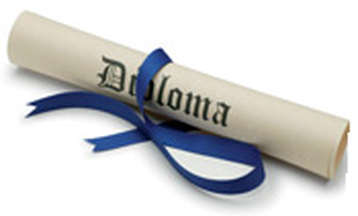Dr. Walden offers oral defense prep for a reasonable fee. If you have a question,
complete the contact form below or text her to arrange services.
404-403-7116 ET
[email protected]
complete the contact form below or text her to arrange services.
404-403-7116 ET
[email protected]
Possible Dissertation/Thesis Oral Defense Questions
Your thesis/dissertation committee chair is usually the moderator for your defense, and he/she will explain the rules on procedure and protocol. During the defense, the committee could ask for further elaboration on the research methods employed in the study; question your findings, conclusions and contributions; and/or ask you to elaborate on the relevance of your study to your profession and society at large. Specific to your study, you need to be ready to discuss: why and how you selected the problem to investigate; the instrument for data collection you chose; the basic assumptions of your study; the theoretical and conceptual framework; the methodology you chose; the way your data were analyzed; and how you solved your problem, reached your conclusions,
answered your research questions, and obtained your purpose. In this way, you and your examiners can reach more extensive insights into the area that you researched.
Some general questions that are often asked at a defense include:
1. If you were to do it all over again, what changes would you make?
2. What surprises did you find in your study?
3. What was the most challenging aspect of your research?
4. What specific aspects of your findings can be taken to practice?
5. How generalizable is your study?
6. What is the most important contribution your study can make to your profession or society?
7. Is there an alternative interpretation of your findings?
8. How would a policy maker be able to utilize your findings?
9. Will your research change current thinking in the field? If so how?
10. How will you communicate your work to other scholars in your field?
11. What will you do, personally, with the findings to make a difference?
12. What advice would you give a student who is starting the dissertation process and
considering using the methodology you used?
13. How did your course work at the university prepare you for your dissertation work?
14. What is your next research project?
[taken from: http://www.subr.edu/assets/GradSchool/OralDefenseQuestions20130218.pdf]
answered your research questions, and obtained your purpose. In this way, you and your examiners can reach more extensive insights into the area that you researched.
Some general questions that are often asked at a defense include:
1. If you were to do it all over again, what changes would you make?
2. What surprises did you find in your study?
3. What was the most challenging aspect of your research?
4. What specific aspects of your findings can be taken to practice?
5. How generalizable is your study?
6. What is the most important contribution your study can make to your profession or society?
7. Is there an alternative interpretation of your findings?
8. How would a policy maker be able to utilize your findings?
9. Will your research change current thinking in the field? If so how?
10. How will you communicate your work to other scholars in your field?
11. What will you do, personally, with the findings to make a difference?
12. What advice would you give a student who is starting the dissertation process and
considering using the methodology you used?
13. How did your course work at the university prepare you for your dissertation work?
14. What is your next research project?
[taken from: http://www.subr.edu/assets/GradSchool/OralDefenseQuestions20130218.pdf]




